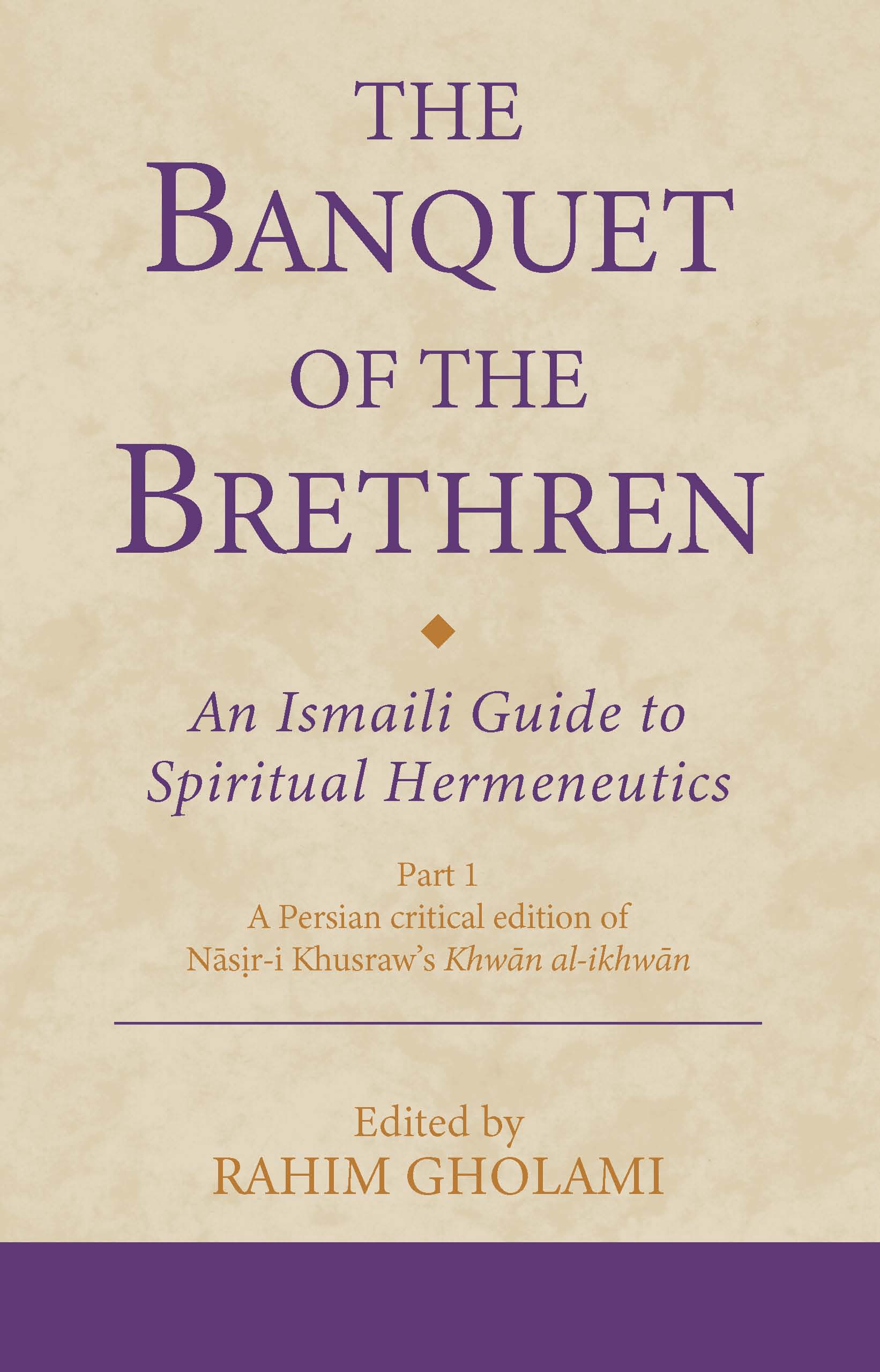The Ismaili dāʿīLit. ‘summoner,’ a term for missionary amongst various Muslim communities, especially used among the Ismailis before and during the Fatimid period as well as in the Alamut period of Ismaili… (missionary) and poet Nāṣir-i Khusraw (d. after 1070) wrote Khwān al-ikhwān (The Banquet of the Brethren) when he was living in his remote mountain refuge of Yumgan in Badakhshan. This work includes a précis of ideas found in the Kitāb al-Yanābīʿ (al-ḥikma) (The Wellsprings of Wisdom), written by the earlier dāʿī Abū Yaʿqūb al-Sijistānī (d. ca. 971). Nāṣir-i Khusraw recast these ideas in Persian and then expanded them into 100 chapters (or ‘courses’ of a banquet). The text presents a sequence of dynamic arguments for divine unicity (tawḥīdThe Oneness of God or belief in Divine Unity, one of the fundamental tenets of Islam.), while also asserting the authority of the Prophet Muhammad, his legatee and son-in-law ʿAlī b. Abī ṬālibCousin of the Prophet Muhammad and his son-in-law by marriage to his daughter Fatima; the first Shi‘i Imam and fourth caliph (d. 661)., and the subsequent Imams from the line of the Prophet’s descendant Ismāʿīl b. Jaʿfar al-Ṣādiq.
Khwān al-ikhwān stands as a significant work in Ismaili theology and philosophy, exemplifying the central role of taʾwīlThe elucidation of the inner or esoteric meaning, bāṭin , from the literal wording or apparent meaning of a text, ritual or religious prescription. (esoteric interpretation). It also reflects the learning of the age, including the conception of a geocentric cosmos, Aristotelian physics, and Neoplatonic philosophy, all of which profoundly influenced the Ismaili dāʿīs in Iran.
This new Persian critical edition is based on the only two extant manuscripts of Khwān al-ikhwān, while referring additionally to Henry Corbin’s edition of al-Sijistānī’s Kitāb al-Yanābīʿ. Rahim Gholami has also prepared an accompanying volume containing an annotated English translation of the Persian text.
Acknowledgements
Abbreviations
Introduction to the edition
Persian edition of Khwān al-ikhwān
Index of Qur’anic Citations
Index of Hadith Citations
Index of Biblical Citations
Select Bibliography
General Index
Rahim Gholami is a Research Associate at The Institute of Ismaili Studies, UK. He received his PhD in Arab and Islamic Studies from the University of Exeter, UK, in 2021. He has translated over 100 articles for Encyclopaedia Islamica (2008– ), an abridged and edited translation of the Persian Dāʾirat al-Maʿārif-i Buzurg-i Islāmī, which is a comprehensive reference work on the Muslim world, with a focus on Shiʿi Islam. His research interests include Shiʿi esoterism and poetics, Ismaili intellectual traditions, and esoteric hermeneutics and literature.

